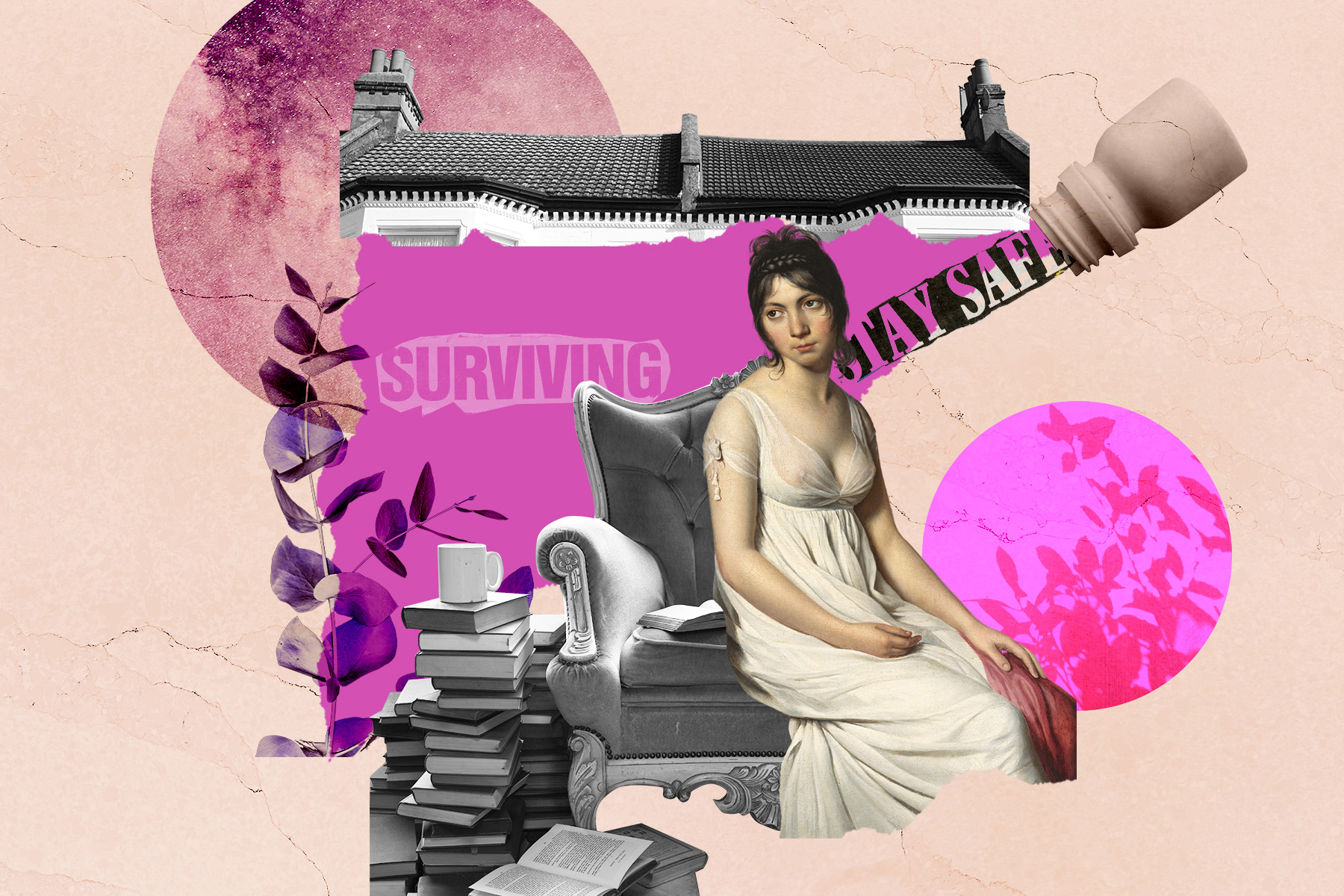My Year of Rest and Relaxation: how Ottessa Moshfegh’s book pre-empted lockdown

I first read Ottessa Moshfegh’s My Year of Rest and Relaxation in 2018, when life was busy and a satirical novel about a year of voluntary confinement sounded like fun. Set in the year 2000, it tells the story of a privileged young woman living on Manhattan’s upper East side who, dissatisfied with her life, resolves to spend a year holed up asleep in her apartment, aided by prescription drugs and a permissive psychiatrist.
A story about a woman confined to bedrest for her nerves might sound anachronistic, but Moshfegh gives the Victorian trope of the confined woman an arch upgrade by framing it within the solipsistic individualism of the early aughts. The book’s iconic cover exploits this tension with style: beneath the hot pink text of the title phrase, is a neoclassical painting of a young woman in a white muslin dress sitting sideways on a chair with an expression of exquisite, sarcastic inertia on her face. A poster girl for our times, though perhaps My Year of Dread and Depression would be more accurate for the 2020 update.
I thought of that cover image often over the last fifteen months, during the many hours I spent sitting inert inside my own apartment. When the anxious monotony of lockdown got on top of me, I’d catch myself wishing I could just go to sleep until it was all over, and found I was thinking of the book’s nameless narrator, too. I was astonished to find myself in a parallel "self-preservational hibernation", albeit under the very much not voluntary circumstances of a global pandemic.
'The themes land differently now, after over a year of enforced confinement and months of headlines about the horror of ventilators and medically induced comas'
The narrator’s desire to escape by disappearing into sleep is, naturally, ultimately unrealistic. Everything she’s running from will still be waiting when she eventually wakes up. This is the lesson of addiction, and the truth at the heart of this novel settles somewhere here, tracing the through line of sincerity underneath its caustic exterior.
Of course, the themes of My Year of Rest and Relaxation land differently now, after over a year of enforced confinement and months of headlines about the horror of ventilators and medically induced comas. Like the narrator and her bodega, most of our lives shrunk to the four walls of our home and our local corner shop; we spent more time with whoever worked there than our own friends and families. It was hard to be productive. Not so for Moshfegh, though, who used the pause enforced by lockdown to write a new novel. I wonder if it’s down to the fact that characters in confinement are a staple of her fiction: like her jaded narrator, she knows that to make a story about stasis interesting, you have to turn it into art.
It’s hard not to see the novel as strangely prophetic, and in more ways than one. Moshfegh hadn’t experienced the death of someone close when she wrote it, but by the time she was doing the book tour she had suffered two great losses in her life: the death of a trusted friend, and that of her brother. She spoke in interviews of how her grief moved her on from the arch perspective of the book, and made her resolve to bring more sincerity and less cynicism to what she was working on next.
Maybe this will be true of our post-pandemic tastes, too. As more people are vaccinated by the day, and parts of the world slowly begin to open up once again, hopefully we are emerging from our enforced hibernation more aware than ever of the need for touch, and kindness, compassion, and patience. It’s ambiguous whether Moshfegh’s narrator succeeds in her mission to save her own life by abandoning it, or simply lobotomises herself by abusing prescription drugs to the point where she no longer lives in reality. But perhaps, from our own post-seclusion vantage points, we can read her perverse choice not as nihilism or selfishness, but a way to beat a path through depression, addiction and grief so she might remember how to forge true connection again. We are ‘waking’ into a world that’s irrevocably changed, but if we look to My Year of Rest and Relaxation for guidance the message is clear: find meaning, however perverse, and you will find a way to survive.
What did you think of this article? Email editor@penguinrandomhouse.co.uk and let us know.
Image: Alicia Fernandes / Penguin / Getty and National Gallery of Art, Washington